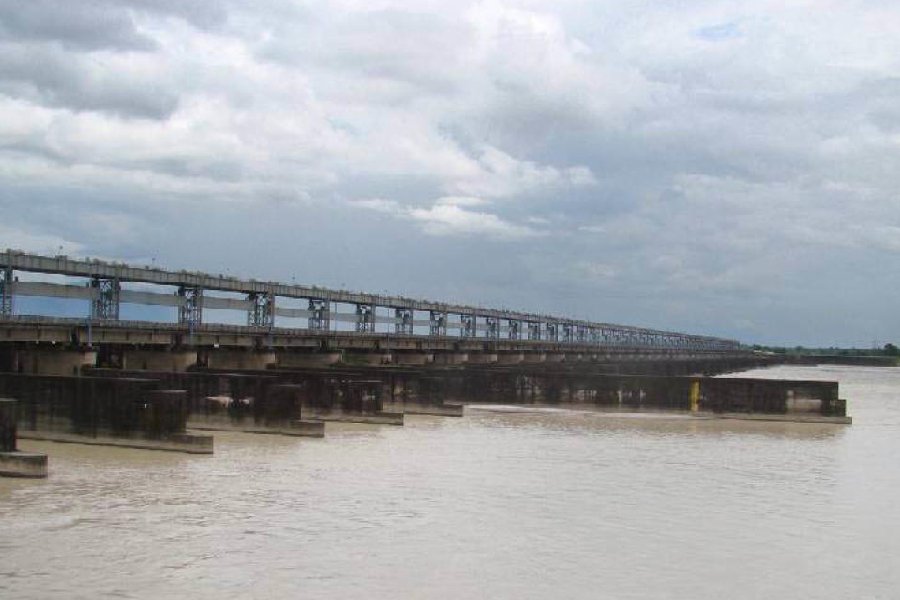The Union ministry of agriculture and farmers’ welfare and the state irrigation department have taken up an ambitious project to irrigate around 98,000 hectares of farmland in four north Bengal districts through pipelines.
The move is being seen as an attempt to try and reach out to those farmers of the region who are yet to get the benefits of the 49-year-old Teesta Barrage Project.
Under the new plan, instead of canals to connect the Teesta waters to farmlands, a network of pipelines would be developed so that the river water could be supplied to more areas.
“It is called the pipe irrigation system. Under this system, water is provided to stretches of agricultural land through pipes and not canals. This removes a major stumbling block, that of acquiring land for canals and sub-canals. It also helps in the appropriate use of water and reduces wastage,” said a senior official of the state irrigation department.
"Funding of the project is being done on a 90:10 basis by the Centre and the state," he added.
The project, sources said, would be taken as an extension of the Teesta Barrage Project, the largest irrigation project planned in north Bengal back in 1975.
Under the plan, it was decided that water drawn from the Teesta and some other rivers flowing through the region, through a network of canals and sub-canals, would irrigate 9.22 lakh hectares of land in six districts (there were six districts in north Bengal then).
So far, the project has been able to irrigate only around two lakh hectares of farmland, not 9.22 lakh hectares.
In 2009, the UPA central government announced this was a national project with an estimated cost of ₹3,000 crore. However, the Bengal government has time and again alleged that the Centre has not provided funds to finish the project.
On Tuesday, a high-level meeting was held in Jalpaiguri in the presence of the officials of the project and state irrigation and agricultural departments, and representatives of Tractebel Engineering Limited, the company assigned by the Centre to execute the new pipe irrigation project.
“Initially, it has been planned that water would be drawn from the Teesta and some other rivers to provide irrigation to around 98,000 hectares of agricultural land in the districts of Jalpaiguri, Darjeeling, North Dinajpur and Cooch Behar. It includes around 35,000 hectares in Jalpaiguri district,” said a source.
B.C. Jha, a senior consultant of Tractebel, said: “In this system, all we need to do is to dig the land to a depth of around one metre to lay the pipeline. Once soil is filled over the pipeline area, farmers can run tractors and carry out their other agricultural practices as usual.”
Mitul Samajik, an engineer of the Teesta Barrage, said they already had a mechanism in place to draw water from the river so that it can be distributed through a network of pipelines.
“Farmers can control the use of water. Thus, water will not be wasted. It (the pipeline system) is a better system of irrigation,” he said, comparing it to canals.
Officials of the state agriculture department said they had identified stretches of land where this system would be introduced.
“Through this system, farmers will get better quality of water as debris will be segregated before water is distributed through pipelines,” said an official.










